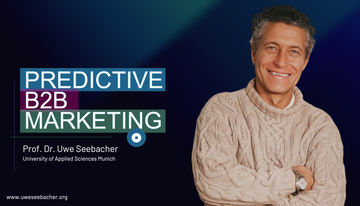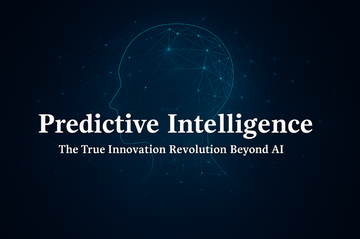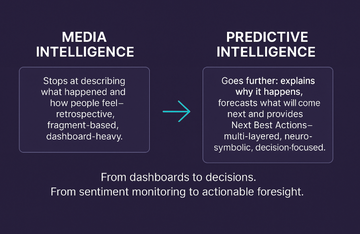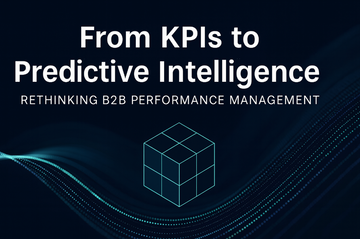
Introduction
Predictive B2B Marketing is revolutionizing the landscape of business-to-business interactions by leveraging advanced predictive intelligence and automation to optimize marketing strategies and outcomes. Prof. Dr. Uwe Seebacher, a distinguished academic and professional with extensive experience across various industries, has significantly contributed to this domain through his expertise and innovative methodologies. Within 6 weeks with 1.000,- Euro marketing budget the scale-up to 100.000,- Euros of the Minimal Fashion eCommerce showcase or the Andritz Separation showcase creating over 30 Mio. Euro Inbound Lead volume within 14 months do provide rather strong evidence for the power and the validity if predictive profite marketing - in both ares B2C as well as B2B.

Core Principles
The foundation of Predictive B2B Marketing lies in the seamless integration of automation, optimization, digitalization, and data generation processes. These elements collectively enhance the efficiency of sales and marketing efforts, enabling businesses to allocate resources towards higher-value activities. Key principles include:
-
Process Automation: Automation of repetitive tasks not only saves time and costs but also allows for the reallocation of resources to more strategic initiatives. This leads to improved operational efficiency and effectiveness.
-
Predictive Intelligence: Utilizing AI-driven models to forecast and predict market trends and customer behaviors. This involves both qualitative and quantitative assessments, drawing from diverse data sources such as texts, plots, articles, and social listening.
- Sales and Marketing Automation: Sales and Marketing Automation streamlines repetitive tasks, enhances operational efficiency, and allows businesses to focus on strategic initiatives, ultimately driving higher-value activities and improved performance.
- Conversion Rate Optimization (CRO): As traditional tools like SEO and SEA become less effective due to advanced AI algorithms, CRO emerges as a crucial strategy. It focuses on enhancing the interaction and conversion rates across various touchpoints in the customer journey.

Implementation Strategies
Successful implementation of predictive B2B marketing strategies requires a structured approach:
-
Process Knowledge: A comprehensive understanding of sales and marketing processes is essential. This involves creating detailed process libraries that serve as a foundation for identifying necessary functionalities and interfaces for automation tools.
-
Pilot Projects: Testing shortlisted tools in controlled environments, using predefined templates to evaluate their effectiveness. This approach minimizes risks and ensures that only the most effective solutions are scaled up.
-
Continuous Optimization: Ongoing refinement and enhancement of automation campaigns are vital. This includes regular testing, data analysis, and incorporation of feedback to optimize performance continuously.
-
Stakeholder Buy-in: Ensuring broad acceptance and support across the organization. Effective change management strategies are necessary to overcome resistance and foster a culture of innovation.
Case Studies and Applications
Prof. Dr. Seebacher's methodologies have been successfully applied across various industries, yielding significant results. Notable examples include:
-
Export Opportunity Forecasting: For a national economic chamber, predictive models were used to identify export opportunities 60% earlier, achieving a 37% higher success rate and 70% lower acquisition costs.
-
Production Capacity Prediction: For a global machinery manufacturer, interactive predictive intelligence solutions led to a 90% time-saving, 85% increase in forecast accuracy, and 40% reduction in inventory costs.
-
Inbound Lead Generation: By implementing predictive B2B marketing strategies, companies like Thinkers.ai achieved a 90% reduction in costs, a 45% improvement in win/loss ratios, and substantial enhancements in funnel and package optimization.

Future Directions
The future of B2B marketing lies in the continuous evolution and integration of predictive intelligence and automation. The emphasis will increasingly shift towards data-driven decision-making and personalized customer experiences. In my works I highlight the importance of human intelligence in harnessing the full potential of these technologies, emphasizing that "a fool with a tool remains a fool."

Conclusion
Predictive B2B Marketing, as championed by Prof. Dr. Uwe Seebacher, represents a transformative approach to modern marketing. By effectively integrating automation, predictive intelligence, and continuous optimization, businesses can significantly enhance their marketing efficiency and effectiveness. The ongoing evolution of these methodologies promises to keep businesses at the forefront of innovation and competitiveness in the B2B landscape.





